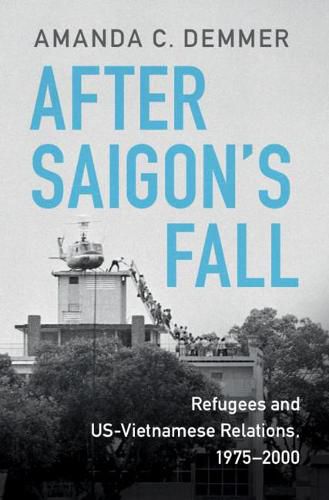Readings Newsletter
Become a Readings Member to make your shopping experience even easier.
Sign in or sign up for free!
You’re not far away from qualifying for FREE standard shipping within Australia
You’ve qualified for FREE standard shipping within Australia
The cart is loading…






Few historians of the Vietnam War have covered the post-1975 era or engaged comprehensively with refugee politics, humanitarianism, and human rights as defining issues of the period. After Saigon’s Fall is the first major work to uncover this history. Amanda C. Demmer offers a new account of the post-War normalization of US-Vietnam relations by centering three major transformations of the late twentieth century: the reassertion of the US Congress in American foreign policy; the Indochinese diaspora and changing domestic and international refugee norms; and the intertwining of humanitarianism and the human rights movement. By tracing these domestic, regional, and global phenomena, After Saigon’s Fall captures the contingencies and contradictions inherent in US-Vietnamese normalization. Using previously untapped archives to recover a riveting narrative with both policymakers and nonstate advocates at its center, Demmer’s book also reveals much about US politics and society in the last quarter of the twentieth century.
$9.00 standard shipping within Australia
FREE standard shipping within Australia for orders over $100.00
Express & International shipping calculated at checkout
Few historians of the Vietnam War have covered the post-1975 era or engaged comprehensively with refugee politics, humanitarianism, and human rights as defining issues of the period. After Saigon’s Fall is the first major work to uncover this history. Amanda C. Demmer offers a new account of the post-War normalization of US-Vietnam relations by centering three major transformations of the late twentieth century: the reassertion of the US Congress in American foreign policy; the Indochinese diaspora and changing domestic and international refugee norms; and the intertwining of humanitarianism and the human rights movement. By tracing these domestic, regional, and global phenomena, After Saigon’s Fall captures the contingencies and contradictions inherent in US-Vietnamese normalization. Using previously untapped archives to recover a riveting narrative with both policymakers and nonstate advocates at its center, Demmer’s book also reveals much about US politics and society in the last quarter of the twentieth century.